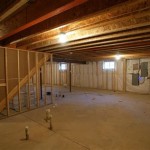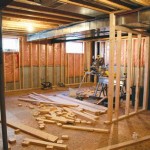Small House Plans With Basements: Essential Aspects to Consider
Incorporating a basement into a small house plan offers numerous benefits, including additional living space, storage, and potential for future expansion. However, it's crucial to carefully consider key aspects to ensure optimal functionality and efficiency.
1. Foundation and Drainage
The foundation of a house with a basement must be strong enough to withstand both vertical and lateral forces. A proper drainage system is essential to prevent water accumulation and potential structural damage. Consider installing a sump pump to remove excess water and protect against flooding.
2. Ceiling Height and Lighting
Ensure that the basement has adequate ceiling height to create a comfortable and usable space. Natural light is limited in basements, so consider ample artificial lighting to create a bright and inviting atmosphere. Recessed lights or skylights can effectively distribute light throughout the area.
3. Ventilation and Air Quality
Proper ventilation is crucial to maintain good air quality in basements. Install a ventilation system to circulate air and prevent moisture buildup. Consider using a dehumidifier to control humidity levels and prevent mold growth.
4. Insulation and Energy Efficiency
Insulating the basement walls, ceiling, and floor will help regulate temperature and reduce energy consumption. Choose high-quality insulation materials to minimize heat loss and create a comfortable environment.
5. Staircase Design
The staircase leading to the basement should be well-designed for both safety and convenience. Ensure it meets building codes and has adequate headroom and width. Consider incorporating natural light or a skylight to illuminate the staircase.
6. Usage and Purpose
Determine the intended usage of the basement to guide the design and layout. Whether for a family room, home office, or storage, specific requirements such as electrical outlets, plumbing, and storage solutions should be considered.
7. Future Expansion Potential
If future expansion is a possibility, design the basement with additional unfinished space or framing that can be easily converted into habitable areas. This foresight can save significant time and cost in the long run.
Conclusion
Incorporating a basement into a small house plan requires careful planning and consideration of essential aspects. By focusing on foundation and drainage, ceiling height and lighting, ventilation and air quality, insulation and energy efficiency, staircase design, usage and purpose, and future expansion potential, you can create a functional, comfortable, and valuable addition to your home.

Small Cottage Plan With Walkout Basement Floor

Small Cottage Plan With Walkout Basement Floor

House Plans Floor W In Law Suite And Basement Apartement

Small Cottage Plan With Walkout Basement Floor House Plans

Basement Floor Plans Types Examples Considerations Cedreo

Small Basement Layout Home Floor Plans

Small House Plans And Affordable Designs Tiny Homes

Basement Floor Plans How To Make A Good Plan For House Layout

Basement Layout
Small 2 Bedroom Bungalow Plan Unfinished Basement 845 Sq Ft
Related Posts







